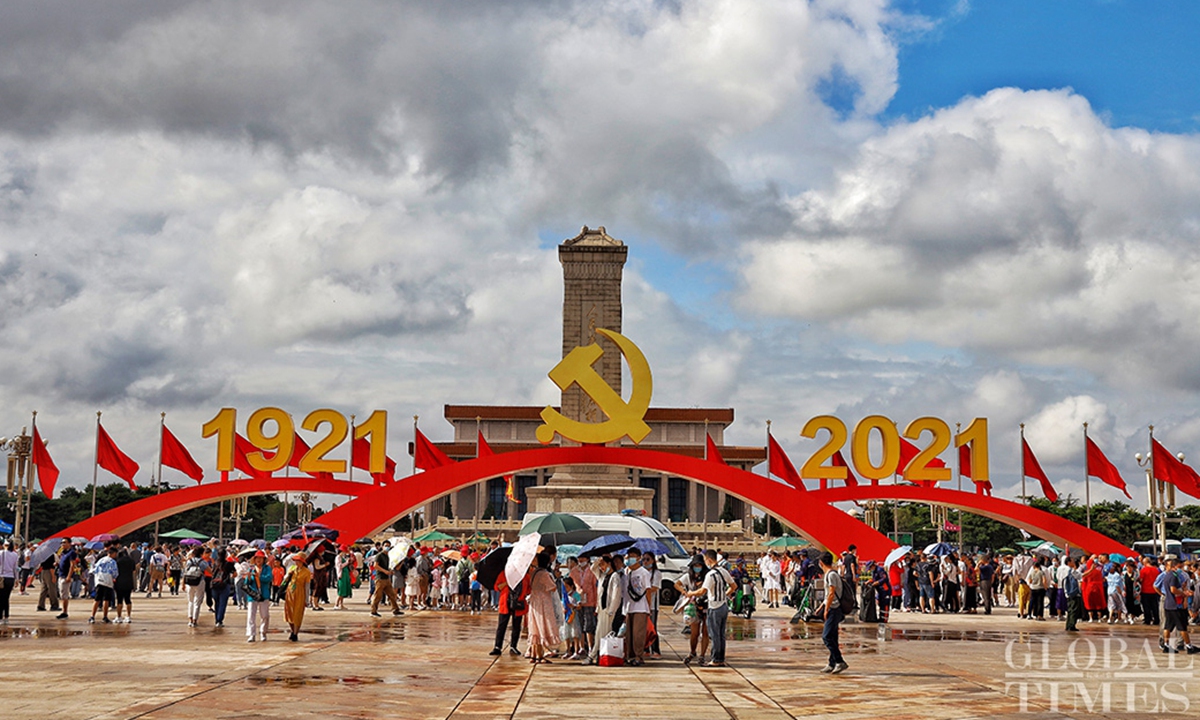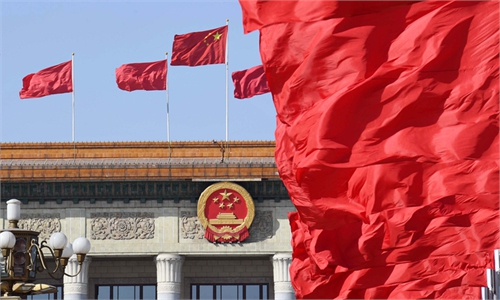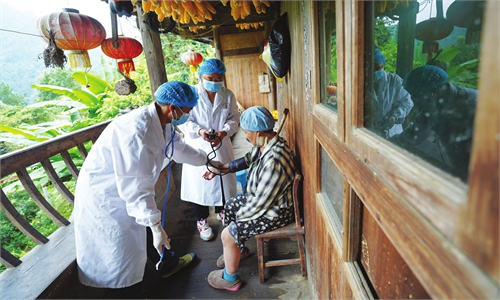CPC specifies demotions, promotions rule to optimize team of officials for 2nd centennial goal

Tourists visited Tiananmen Square to relive the exciting moment of the CPC centennial Photo:Li Hao/GT
The Organization Department of the Communist Party of China (CPC) Central Committee elaborated on a newly released Party regulation which requested "proper promotion and demotion of officials," showing the Party's determination to promote qualified and dedicated talent in the journey to realize the second centennial goal of building China into a modern socialist power, observers said on Wednesday.
The regulation was issued at a time when the world is seeing major changes, and China's reform and development face challenges and effective governance under tests, the Xinhua News Agency cited an Organization Department official as saying.
It is urgent to build strong leadership teams at all levels to stimulate and protect officials' enthusiasm and creativity for the great cause. Most of the officials have fought at the front in poverty reduction, COVID-19 control and high-quality development missions, but there are a few who do not fulfill their duties, act casually or do nothing, the official said.
According to the official, the difficulty of carrying out the regulation lies in enforcing demotion, especially how to adjust the posts of officials who "have some problems but have not yet engaged in severe violation of laws and disciplines."
The new regulation specified certain scenarios that determine whether an official is qualified for a post, including inspection of political performance, belief in the Party's cause, sense of duty, capability, work style and morality. The regulation also optimized the procedures of demotion, including the arrangement of "early retirement."
Zhang Xixian, a professor at the Party School of the CPC Central Committee in Beijing, told the Global Times on Wednesday the regulation marked the Party's unswerving efforts to purify and improve its official team to better achieve the second centennial goal.
Work style building shall be a long-term task, and the regulation was issued based on experience in anti-graft work and disciplinary supervision, Zhang said.
Through inspections, auditing, internal supervision and public supervision, officials who show an inclination toward corruption or other forms of misconduct can be fairly identified at an early time and removed from the post at any level to prevent more serious consequences, Zhang explained.
It can also prompt all officials to frequently reflect on themselves to not only stay away from misdeeds that involve violating laws and disciplines, but also bear their missions in mind and fulfill their responsibilities of leading in the Party's cause, the expert said.
Also on Wednesday, three "tigers" with Sun Lijun's (former vice public security minister) clique - Deng Huilin, Gong Dao'an and Liu Xinyun - were sentenced between 14 years and life imprisonment and fined varying amounts for taking bribes and abusing their power.
The "tigers and flies" caught are handled in line with the law, yet China's anti-graft battle does not end there - work is being done to prevent officials from dereliction of duty or degeneration, observers said, noting it is also a way to protect officials who are loyal to the Party's cause.


